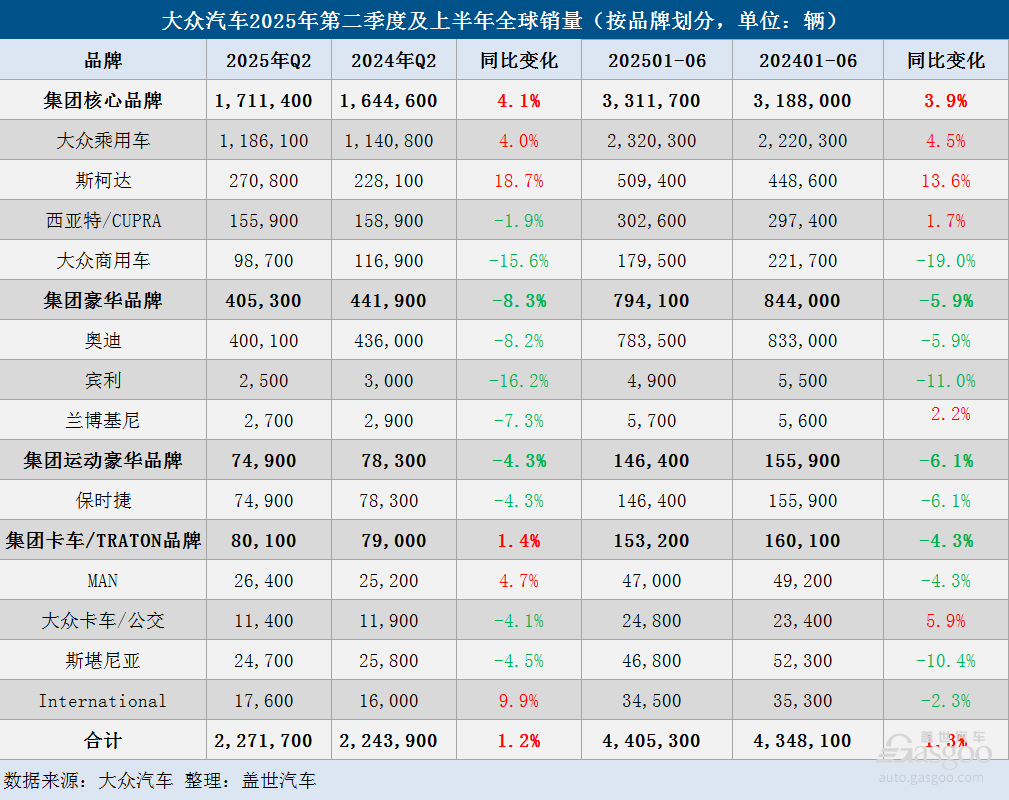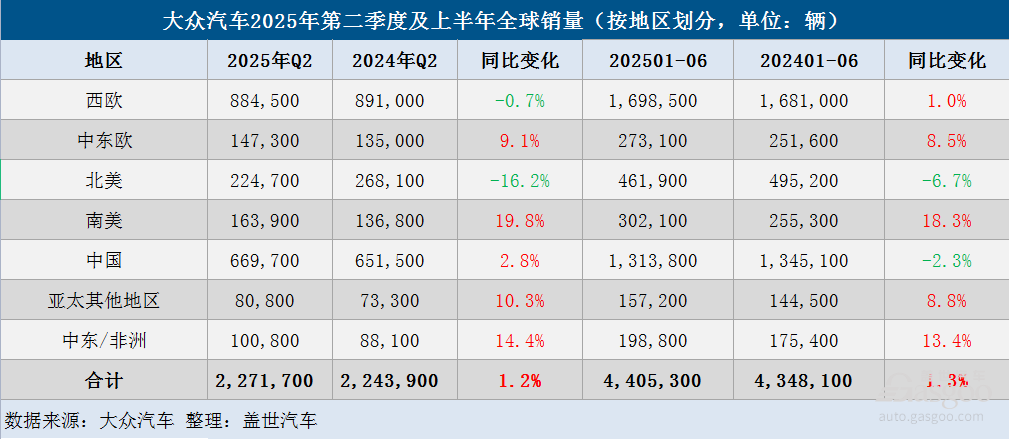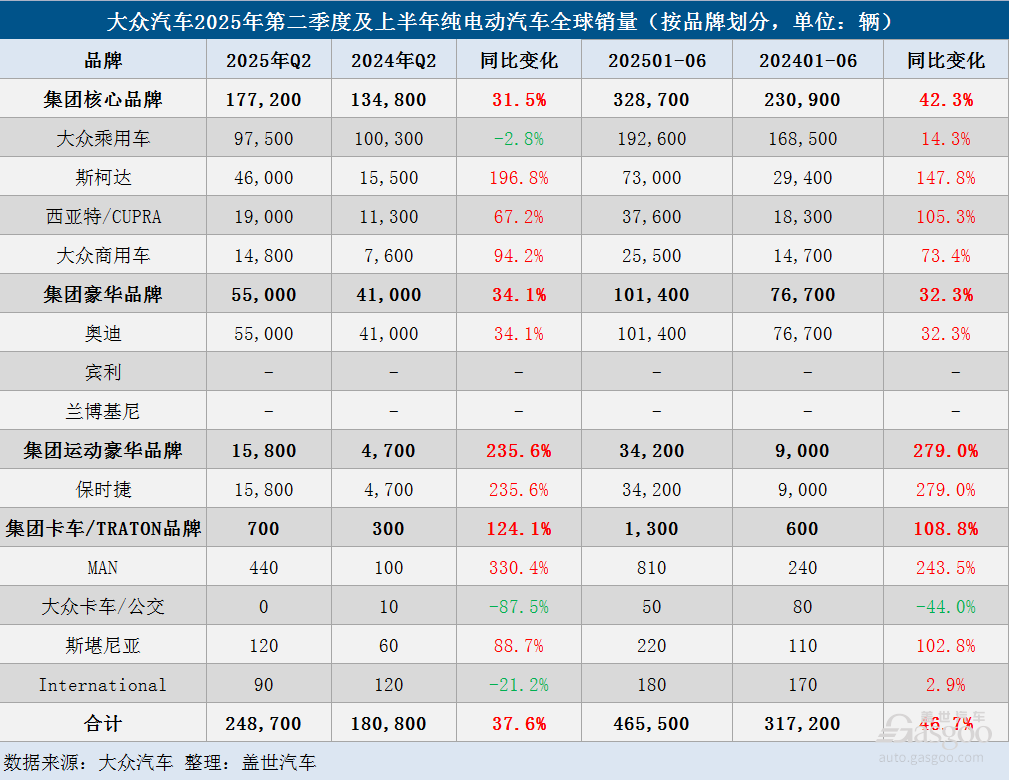On July 9, Volkswagen Group announced a slight global sales increase of 1.2% in the second quarter, reaching 2,271,700 vehicles, despite declining demand in the U.S. market and uncertainties over tariff policies. The strong sales of electric models in Europe contributed to this growth, with deliveries of pure electric vehicles amounting to 248,700 units, a year-on-year increase of 37.6%. From January to June 2025, Volkswagen Group delivered a total of 4,405,300 new vehicles globally, achieving a year-on-year growth of 1.3% despite a challenging market environment. Deliveries of electric vehicles reached 465,500 units, marking a significant 47% increase, with their share of total sales rising from 7% to 11% compared to the same period last year; plug-in hybrid electric vehicles (PHEVs) totaled 192,300 units, up about 41% from last year. Regionally, Volkswagen Group's sales in North America were 224,700 vehicles in Q2, down 16.2% year-on-year, contrasting sharply with the 4.4% growth seen in the first quarter before the tariff implementation. In Western Europe, they delivered 884,500 vehicles, a minor drop of 0.7% year-on-year, while in Central and Eastern Europe, deliveries amounted to 147,300 vehicles, up 9.1%. Across the entire European market, sales of pure electric vehicles reached 189,700 units, a significant year-on-year increase of 72.9%. In China, Volkswagen's performance was mixed in Q2: while deliveries of pure electric vehicles fell sharply by 32.6% to 33,400 units, overall sales still grew by 2.8% to 669,700 vehicles. The decrease in electric vehicle sales by nearly one-third in the largest automotive market in Asia highlights the increasing competition Volkswagen faces in China. In the first half of 2025, Volkswagen Group delivered a total of 1,313,800 vehicles in China, down slightly by 2.3% year-on-year. Notably, in June, deliveries in the Chinese market reached 247,000 units, a year-on-year increase of 9%. Marco Schubert, a senior sales executive at Volkswagen, stated, "We need to further consolidate this positive development through a successful product offensive." He added, "Despite facing a challenging market environment, we achieved a slight increase in global deliveries as of the end of June. Growth in South America and Europe completely offset the declines in China and North America." However, data indicates that European automakers, including Volkswagen, are gradually losing growth momentum in the U.S. market, while continuing to lag behind in China as local electric brands like BYD are capturing market share. Mercedes-Benz Group also reported on July 7 that its deliveries in the U.S. and China had declined due to the impact of Trump-era tariffs, resulting in a 9% drop in global sales for Q2.
Volkswagen Group Reports 1.2% Global Sales Growth in Q2 Despite Challenges

Images



Share this post on: